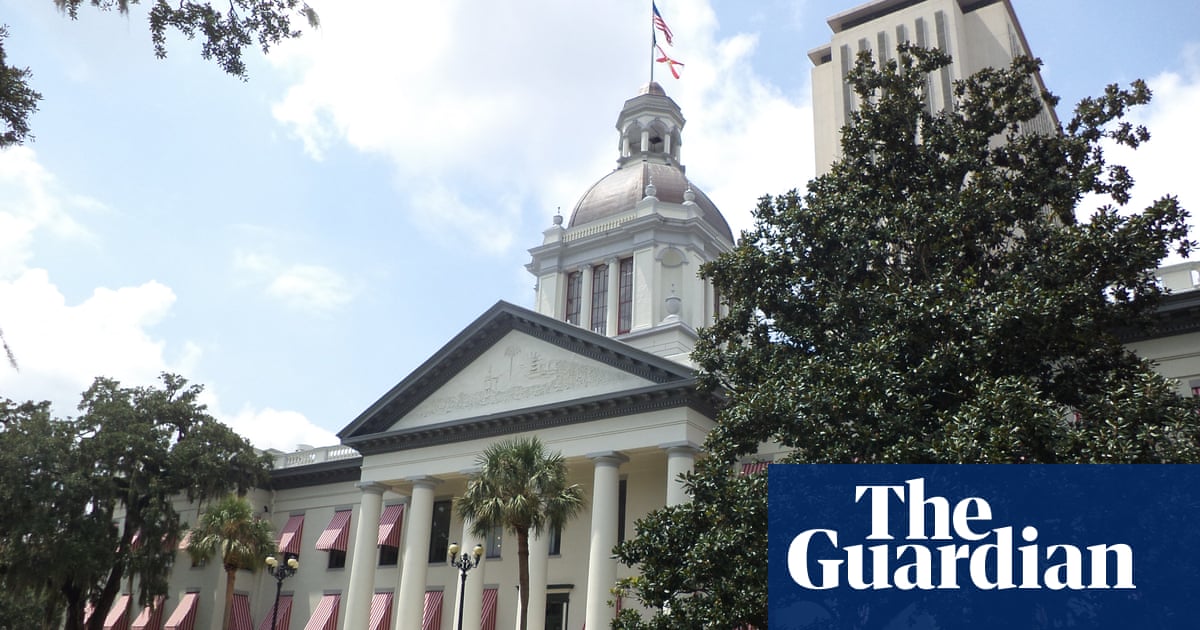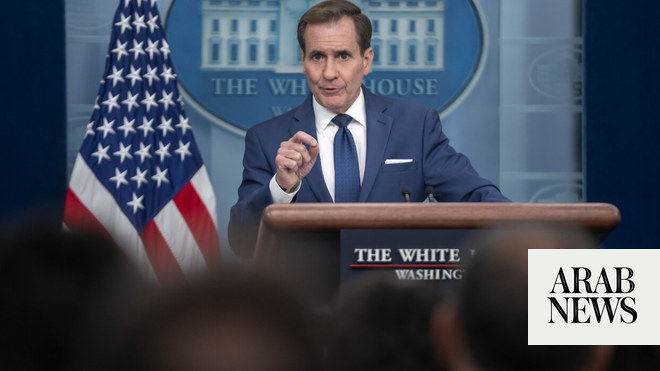
American states have announced $300m in Israeli bond purchases in the past four weeks, throwing their financial weight behind the country’s government as its war with Hamas escalates.
The majority of the money comes from states with senior financial officials who are members of a conservative group that has railed against the “politicization” of taxpayer-funded investments, the Guardian found.
Fourteen states have backed Israeli investments since the Hamas attack in southern Israel on 7 October, according to official announcements and Israel Bonds, the US-based underwriter of debt securities issued by the state of Israel.
Financial officials of 12 of those states are members of the State Financial Officers Foundation (SFOF), a body backed by rightwing groups and corporate interests. Israel Bonds itself was a “bronze sponsor” of SFOF as recently as last year.
The SFOF has vociferously campaigned against environmental, social, governance (ESG) investment strategies. Considering factors like climate change puts “politics over returns”, it has claimed, yielding “less than optimal” profits for investment vehicles serving retirees and taxpayers.
David Armiak, research director at the Center for Media and Democracy, a progressive non-profit organization that monitors corruption, argued that purchasing Israeli bonds was a political decision. “The whopping investment of taxpayer money in Israel Bonds by SFOF members – to support Israel’s war effort – screams of hypocrisy,” he said.
The SFOF’s website no longer discloses its sponsors but cites the American Legislative Exchange Council (Alec) and the Heritage Foundation among its “educational resources”. The organization and Israel Bonds did not respond to requests for comment on whether their financial partnership remained in place.
Israel Bonds, also known as the Development Corporation for Israel, raises foreign funds for the Israeli government. It launched a funding drive in the aftermath of last month’s attack by Hamas, which killed 1,400 people. The Israeli government responded by tightening its blockade and bombarding the Gaza Strip. More than 9,000 people in Gaza have been killed, according to its health ministry.
States have committed at least $300m to Israeli bonds since 7 October, of which $270m has been announced by Republican financial officers who are members of SFOF, according to an analysis by the Guardian.
No state has pledged more than Florida, which first pledged to invest $25m into Israeli bonds, before announcing an additional $120m this week. The state’s chief financial officer, Jimmy Patronis, said it was seeking to “assist our allies in Israel both morally and monetarily”.
Patronis, an SFOF member, has regularly attacked “woke” investments, accusing Farmers Insurance of “virtue signaling” and claiming that Wall Street “wants to cozy up to the CCP [Chinese Community party] and [trans influencer] Dylan Mulvaney!”
The Indiana state treasurer, Daniel Elliott, another SFOF member, announced the purchase of $35m in Israeli bonds on Wednesday. “Israel is our most important ally in the world,” he said. The investment was criticized by Malkah Bird, a member of Jewish Voice for Peace Indiana, who described the move as “unconscionable”.
Texas also moved to purchase $20m in Israeli bonds to provide the country “with the financial liquidity needed to respond to the atrocities we’ve all witnessed”, Glenn Hegar, the state’s comptroller, said in a statement announcing the decision. Hegar is also an SFOF member, and one of the anti-ESG movement’s most influential critics.
Eleven states with financial officers in the SFOF have announced that they have, or will, purchase Israeli bonds since 7 October. Israel Bonds claims to have received support from another, Nevada, which did not respond to a request for comment.
Two Democrats without affiliation to SFOF – Thomas DiNapoli, New York state comptroller, and Michael Frerichs, Illinois state treasurer – have also announced support. New York’s Common Retirement Fund purchased $20m in additional Israeli bonds, while Illinois invested $10m.
Such donors are “investing in Israel’s strength and Israel’s future”, the Development Corporation for Israel said in a recent promotional video. It says Israeli bonds amount to a reliable investment. Its two-year jubilee bonds, for example, have an interest rate of 5.15%.
On Tuesday, Patronis said Florida’s vast investment was a “prudent use of state funds”, and called on other states to follow suit. Elliott, of Indiana, claimed Israeli bonds “have provided high rates of returns for investors, even outperforming their American counterparts”.
Leading credit ratings agencies have sounded a note of caution, however. Last week, S&P Global Ratings downgraded Israel’s credit outlook from stable to negative, citing “the risk that the Israel-Hamas war could spread more widely or affect Israel’s credit metrics more negatively than we expect”.
Armiak said: “SFOF and its network of operatives and members have consistently messaged that asset managers should focus on pecuniary factors when investing and not consider environmental, social or political interests, but now they make an exception to fund Israel’s war? Why?”
Contacted by the Guardian about Arizona’s recent commitment to Israel Bonds, Kimberly Yee, the state treasurer, did not directly address whether SFOF played a role in the decision. She told the Guardian: “I will continue supporting Israel bonds as they provide reliable returns while contributing to Israel’s economic wellbeing.”
The Alabama treasury, Arkansas treasurer’s office, Florida treasury, Georgia governor’s office, Louisiana treasury, Ohio treasury, Pennsylvania treasury and Texas comptroller of public accounts did not respond to requests for comment.
Indiana’s decision was based on “historical data points and future projections”, Elliott said in a statement. Comparing support for Israel with “opposing large corporations who use ESG policies to impose their will on businesses they disagree with politically” is “morally wrong”, he told the Guardian.
The Oklahoma state treasurer’s office said it had invested in a $5m bond and “is going to secure another for $10m, with plans for more”, a spokeswoman said. When asked how much the state had made on previous investments in Israeli bonds, and whether SFOF played a role in the latest decision, it did not respond.
The Israel-Hamas conflict has triggered a surge in investment in Israeli bonds – not all of it at the state level. Palm Beach county, Florida, announced this week what it described as the single largest one-time investment in Israeli bonds: a $135m purchase.










